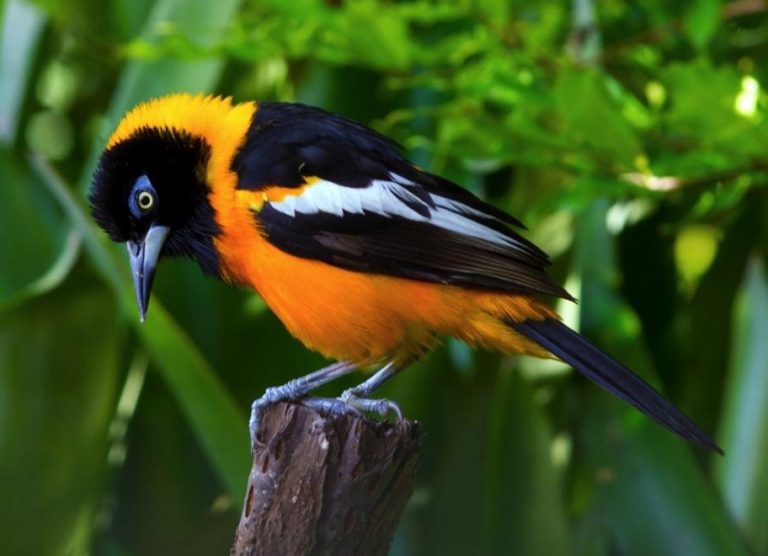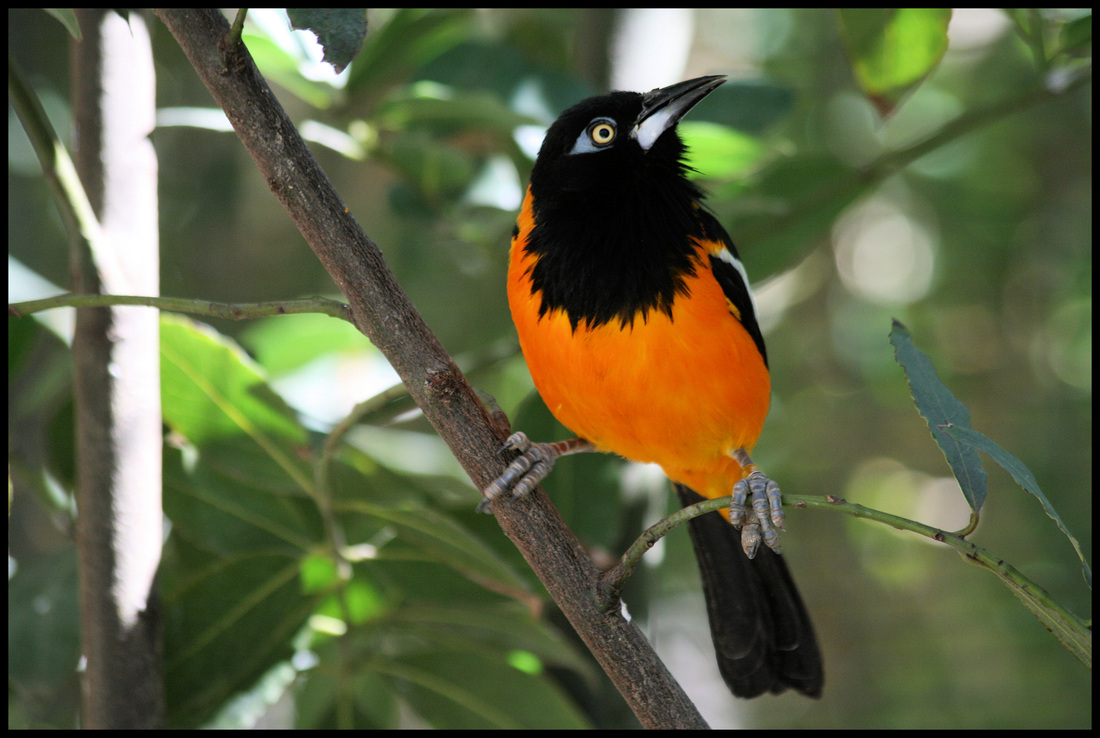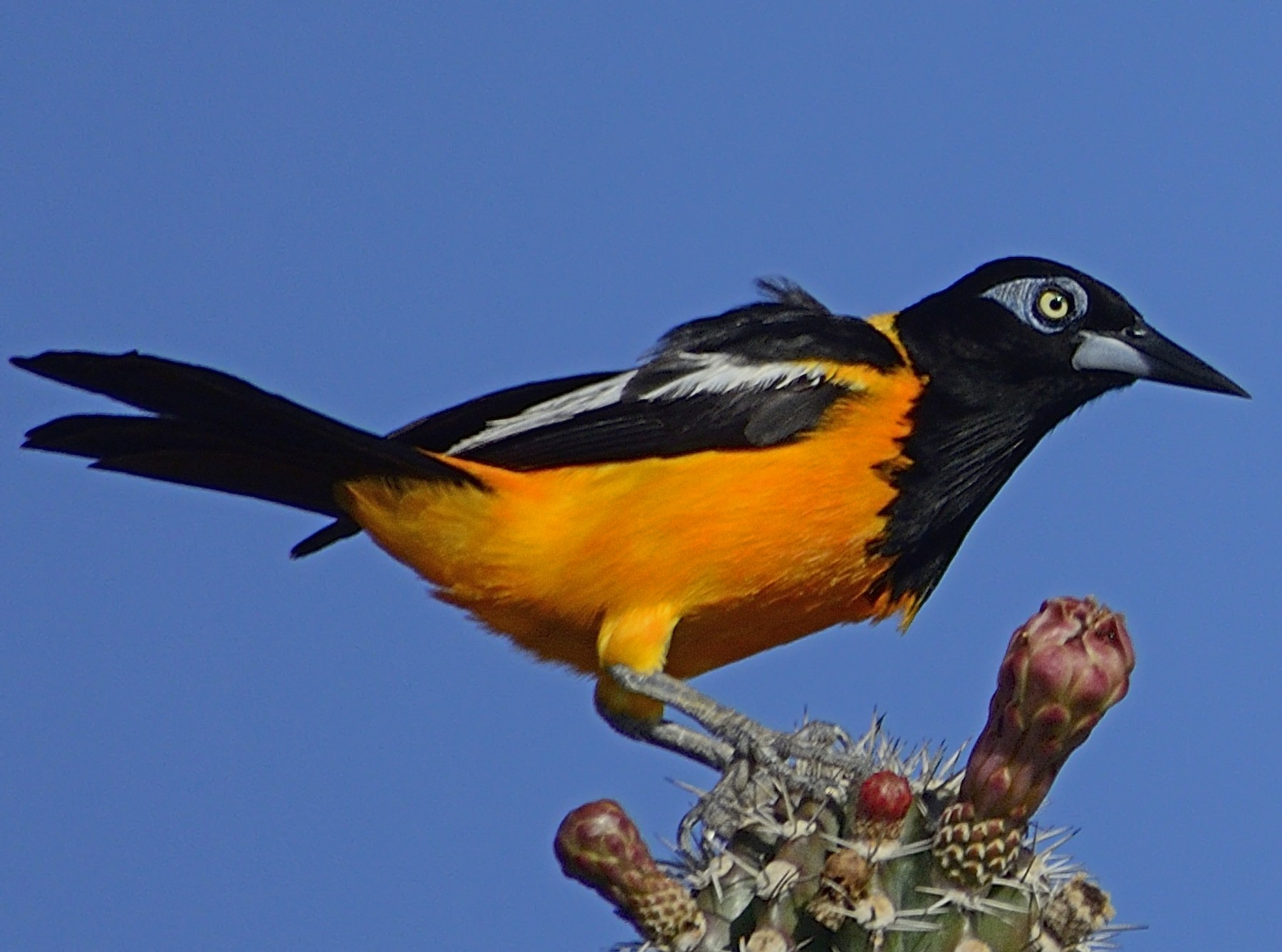Bright swathes of fiery orange and red stand out in bright contrast against black, white, and blue!
MEET THE VENEZUELAN TROUPIAL

The Venezuelan troupial (Icterus icterus) is a relatively large bird with a long tail and strong bill. The upper breast area and head are black, with the feathers on the upper breast stick out, marking an uneven line between the black and orange of the bird’s lower breast and belly. Orange is also found on the upper and lower back, separated by black shoulders. The wings are black too with a white streak running the length of the wing when it is closed. The yellow eyes are surrounded by bright blue bare skin.

Juveniles are similar to adult birds though they are paler with a brown wash over the black parts of their plumage.
The eye skin of younger birds is also duller.
Though this bird is the international bird of Venezuela, it is also found in Colombia, and the Caribbean islands of Aruba, Curaçao, Bonaire, Trinidad, and Puerto Rico.

These birds prefer to inhabit woodland habitats with lush, dense vegetation, including scrub areas and overgrown grasslands as well as orchards. They also adapt well to fragmented habitats and forest edges too.
Being omnivorous bird’s, they will happily dine on the abundant food the tropical climate provides, including insects, fruit, nectar, berries, and seeds. They will also eat eggs and young nestlings, and if the opportunity arises, it is thought they might possibly sip from nectar feeders.

Venezuelan troupials breed from March through to September. They do not construct their own nests but are instead out and out nest pirates. This means that they make no nest of their own, but instead must either find a vacant nest or must drive the adults away from an active nest. Venezuelan troupials are capable of violent attacks against established nesters. Upon taking over a nest, they may eat any eggs or young nestlings remaining, and will fiercely defend the area against any other would-be intruders.
This bird is regarded as of Least Concern on the IUCN Red List with more than 1,300 birds have been recorded in Venezuela, making it a popular destination for birding tours.

Source: https://bom.so/mdrdax










